Meta-Learning
Definition of meta-learning:
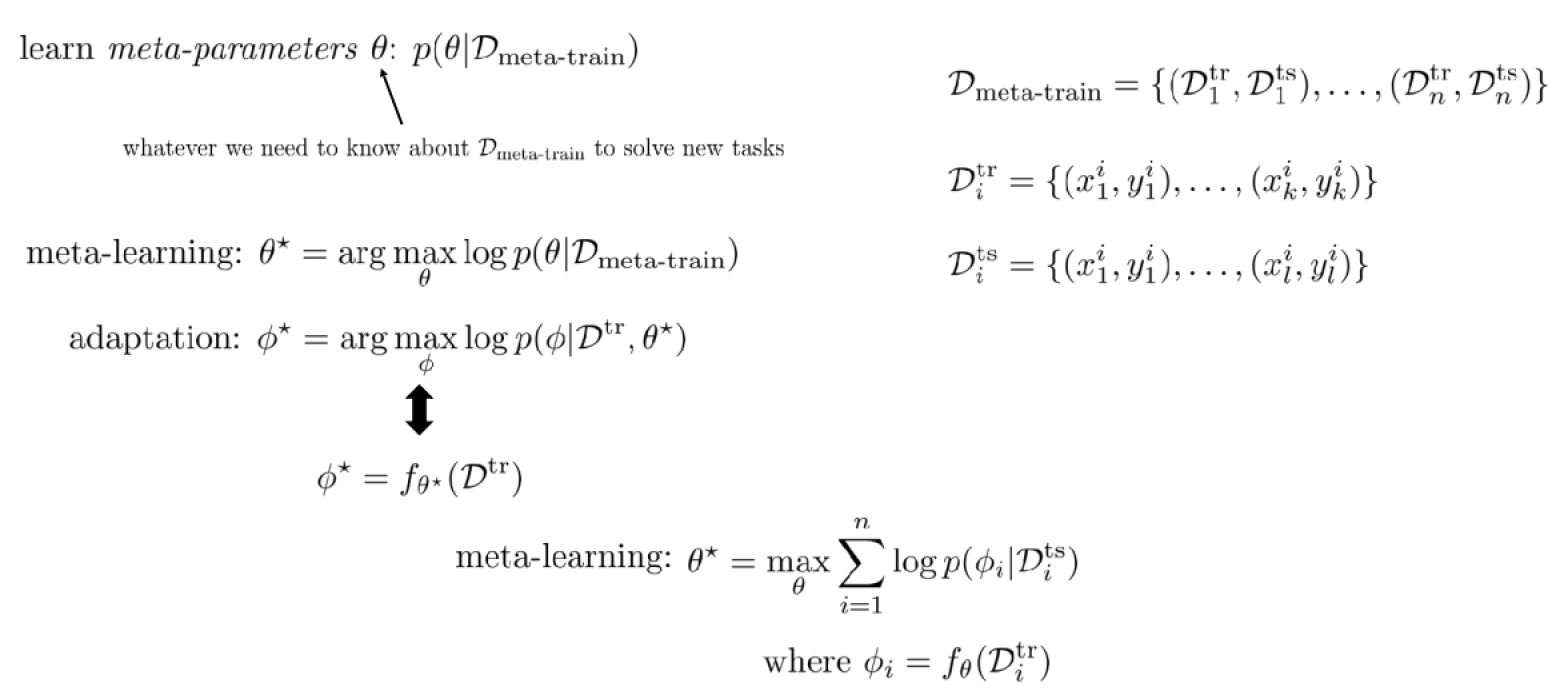
The probabilistic view of meta-learning:
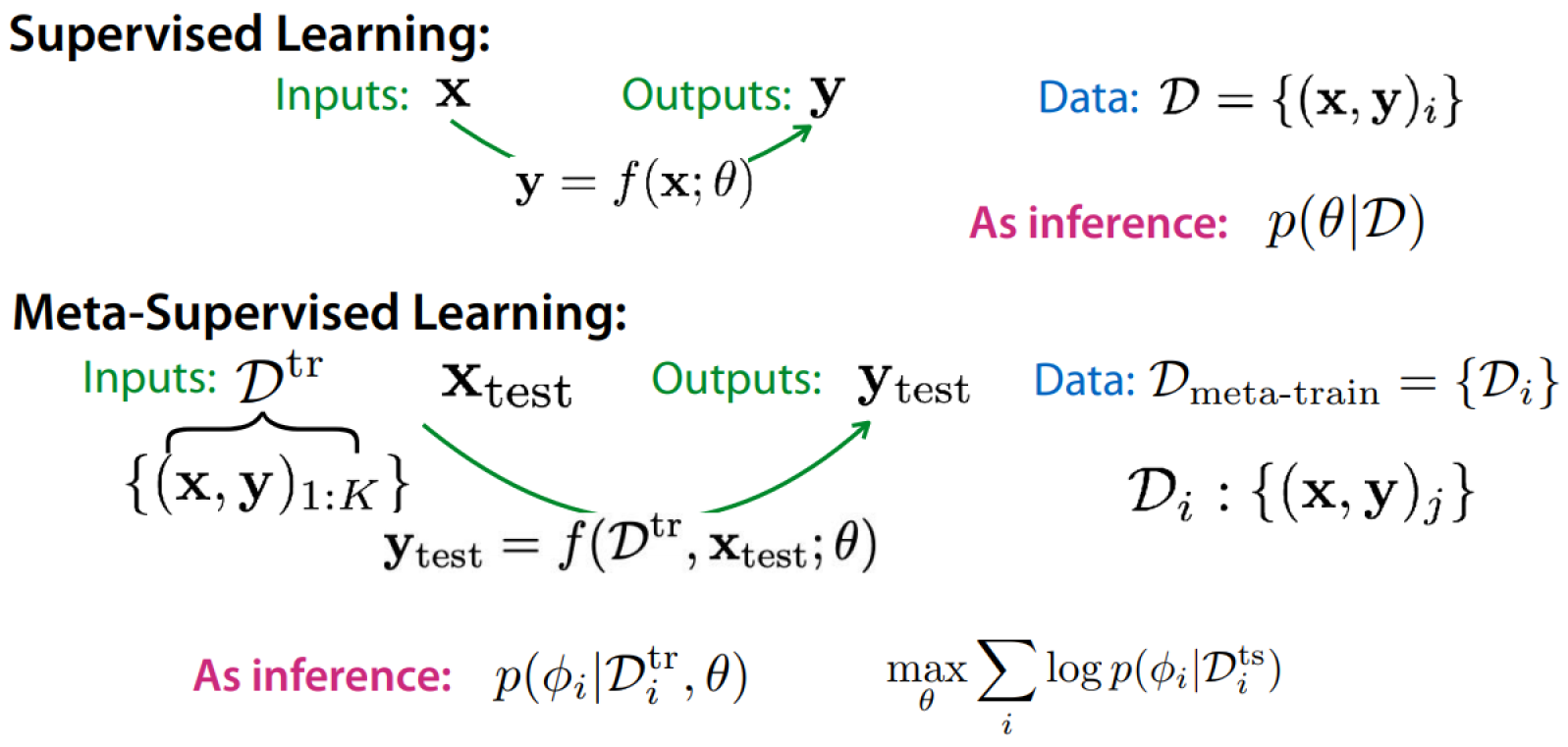
How to design a meta-learning algorithm
- Choose a form of
- Choose how to optimize w.r.t max-likelihood objective using
Black-Box Adaptation
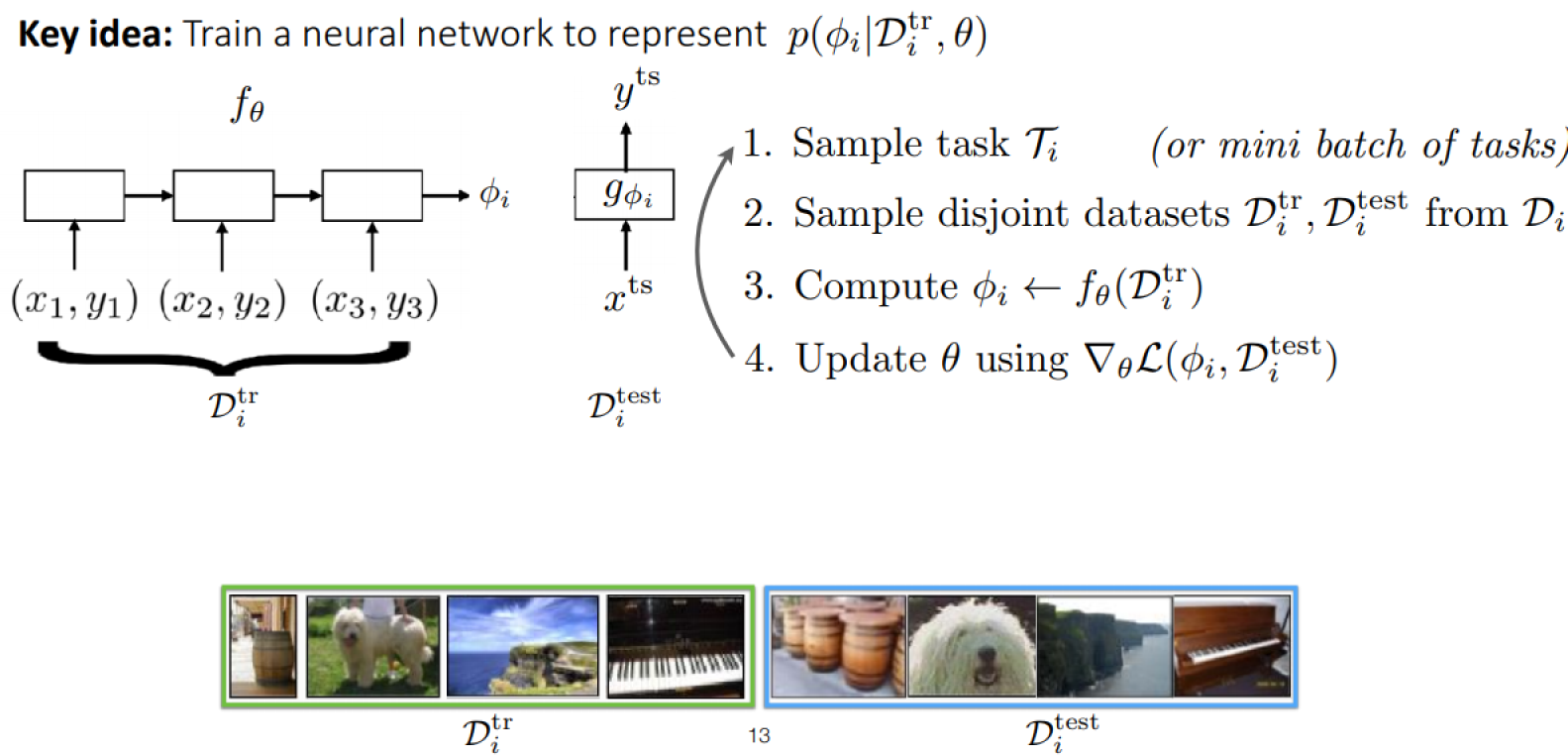
Challenge
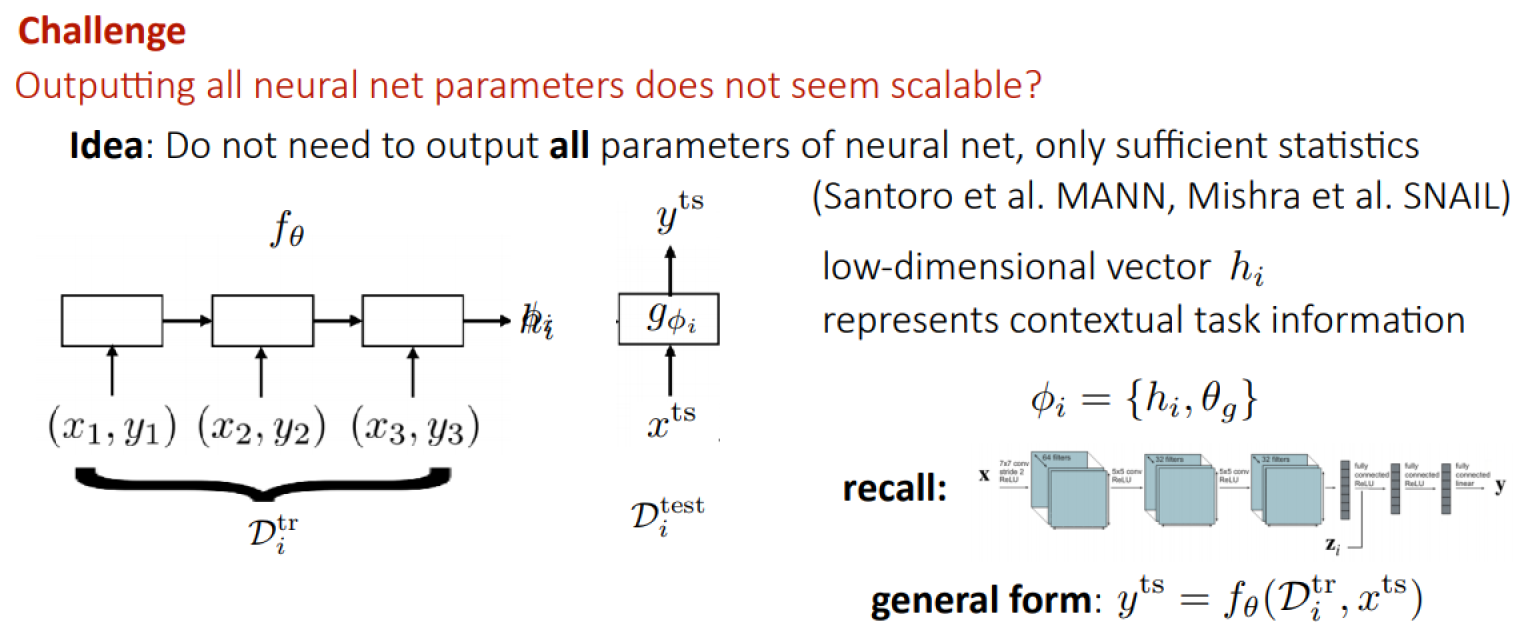
Pro:
- Expressive
- Easy to combine with variety of learning problems(e.g. SLk, RL)
Con:
- Complex model w/ complex task: challenging optimization problem
- Often data-inefficient
Optimization-Based Inference
Fine-tuning
Key idea: Acquire through optimization.
This assumes meta-parameters serve as a prior. One successful form of prior knowledge is: Initialization for fine-tuning.
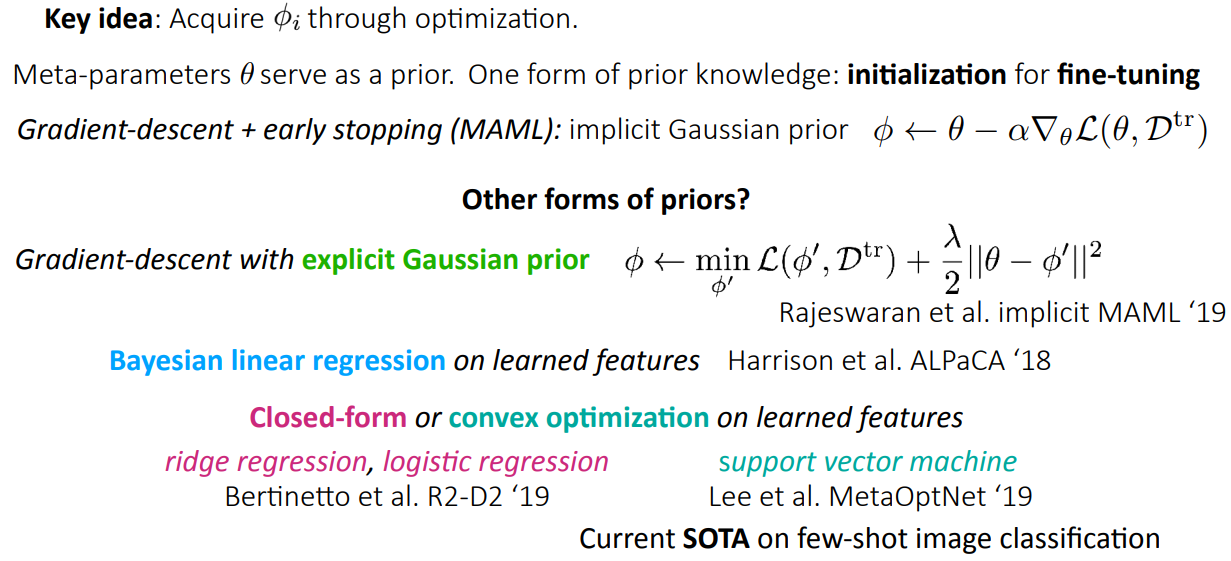
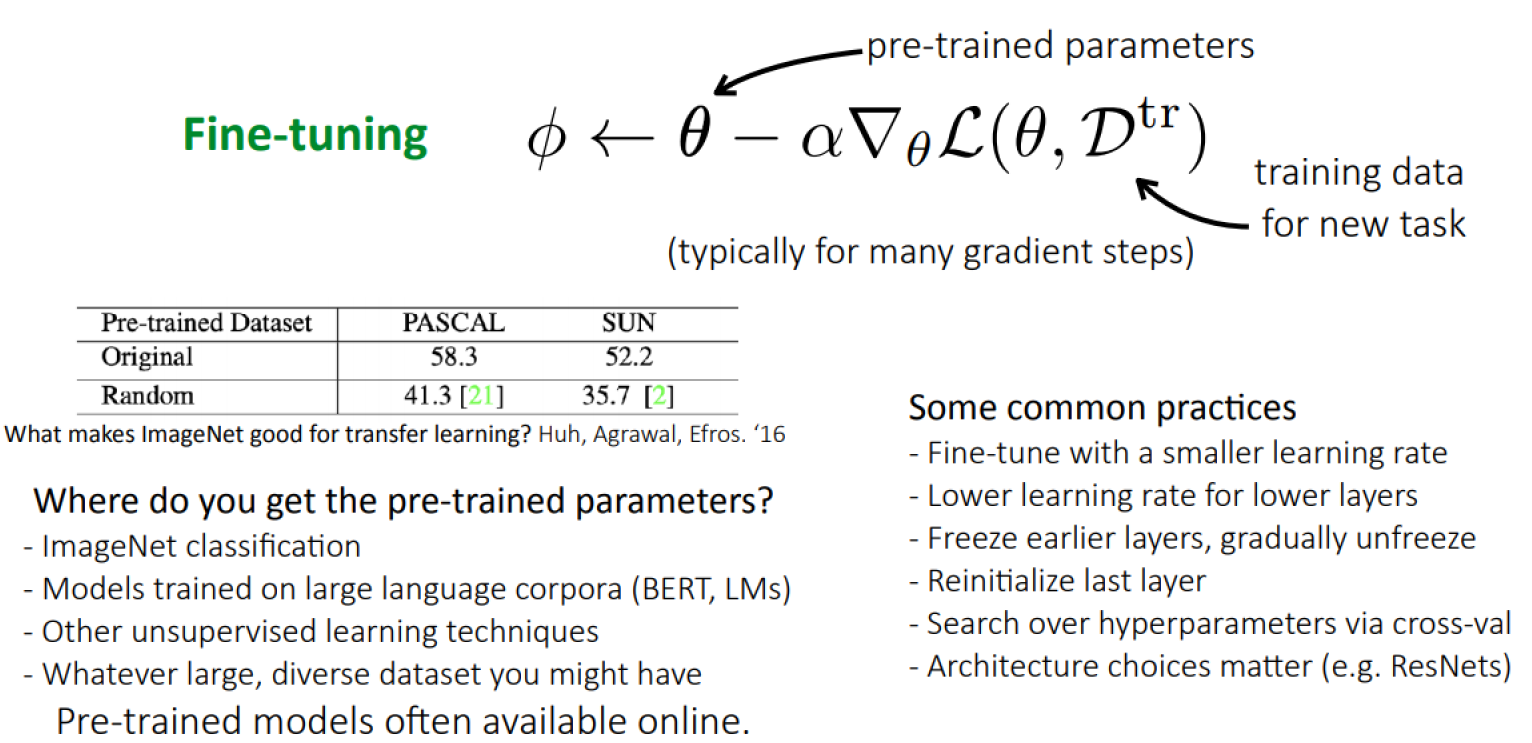
Fine-tuning is less effective with very small datasets.
Meta-learning
Key idea: Over many tasks, learn parameter vector that transfers via fine-tuning.

Model-Agnostic Meta-Learning
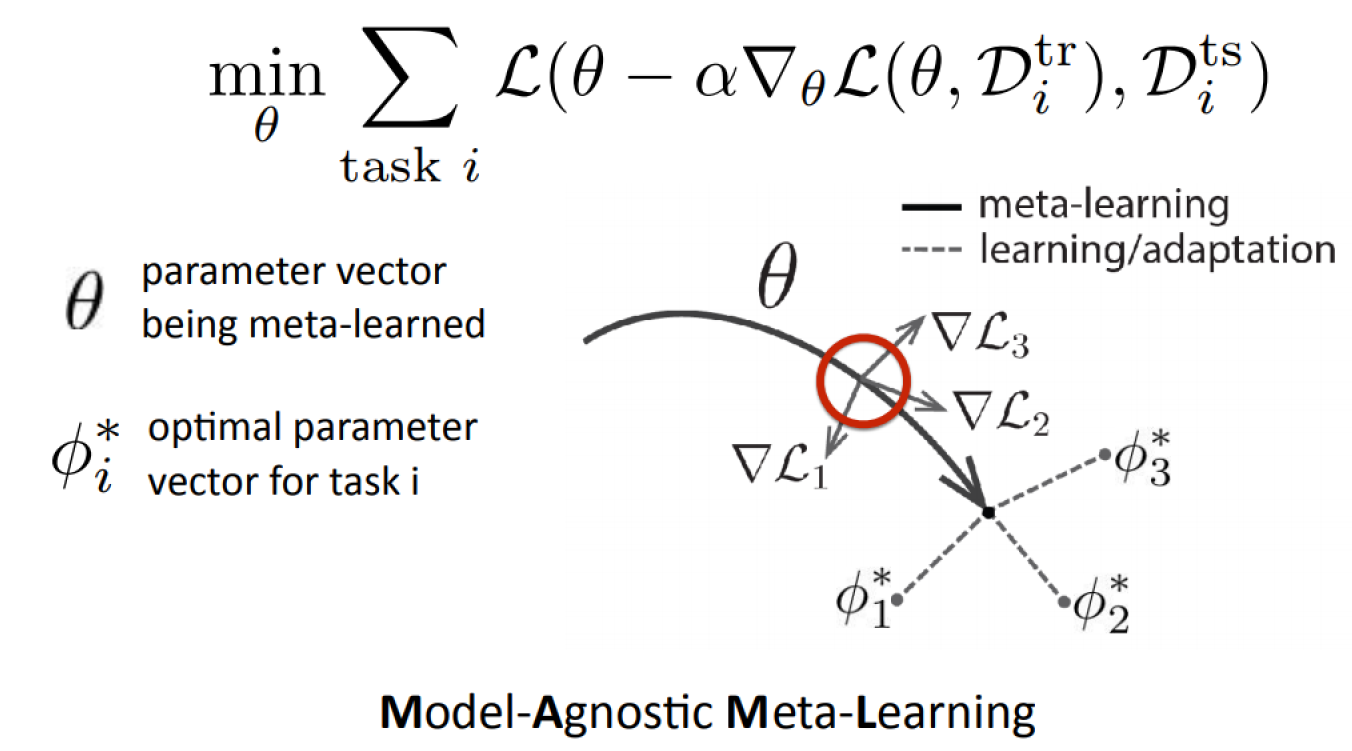
From: Finn, Abbeel, Levine. Model-Agnostic Meta-Learning. ICML 2017
Optimization vs. Black-Box Adaptation
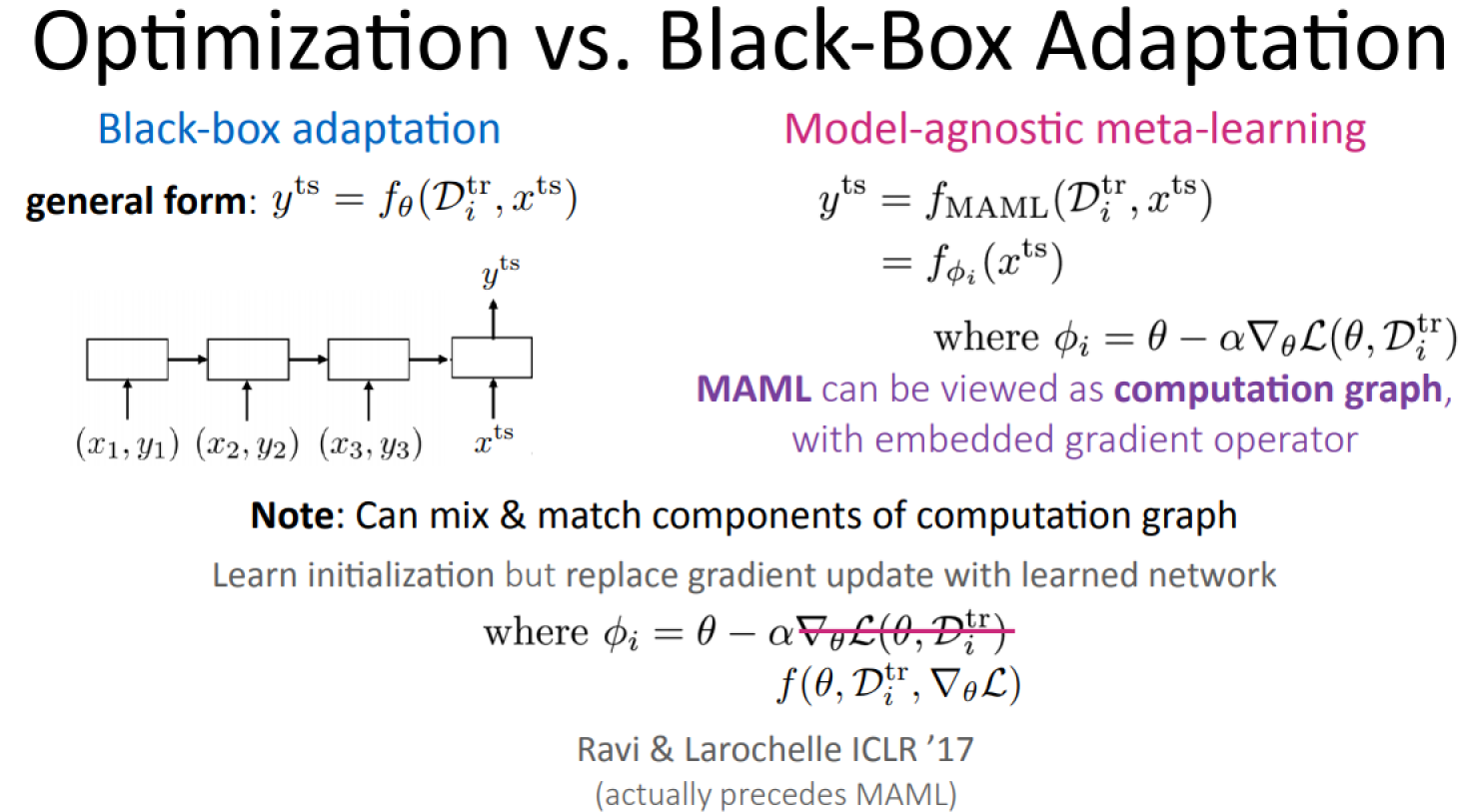
For a sufficiently deep f, MAML function can approximate any function of .

Challenge
How to choose architecture that is effective for inner gradient-step?
Idea: Progressive neural architecture search + MAML (Kim et al. Auto-Meta):
- Finds highly non-standard architecture (deep & narrow)
- Different from architectures that work well for standard supervised learning
Bi-level optimization can exhibit instabilities.

Back-propagating through many inner gradient steps is compute & memory intensive.
Idea: Derive meta-gradient using the implicit function theorem. Form Rajeswaran, Finn, Kakade, Levine. Implicit MAML, 2019
Note: Cover Picture
